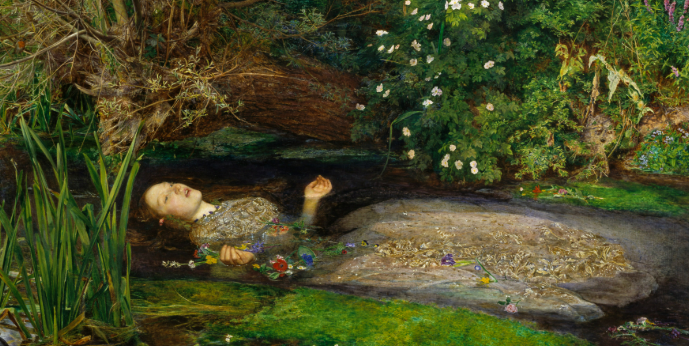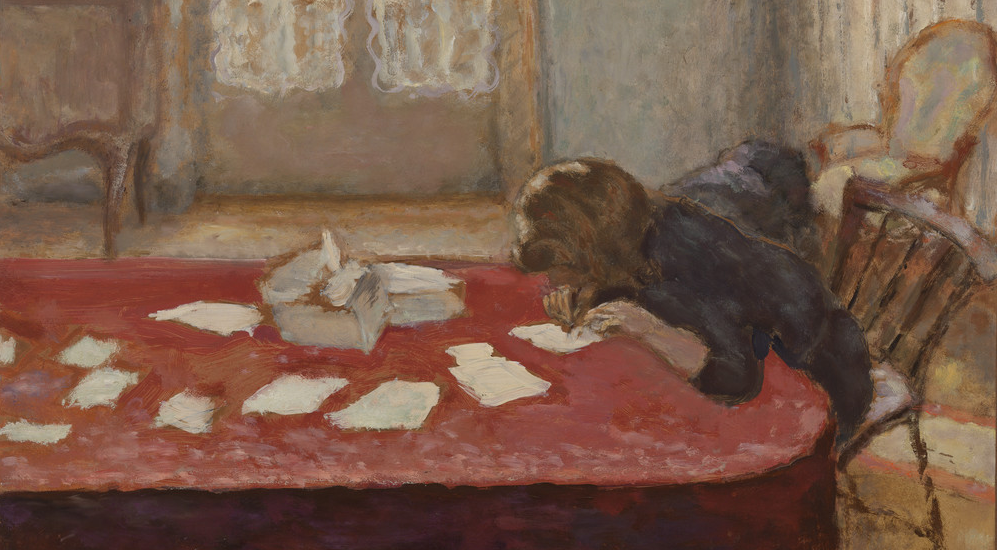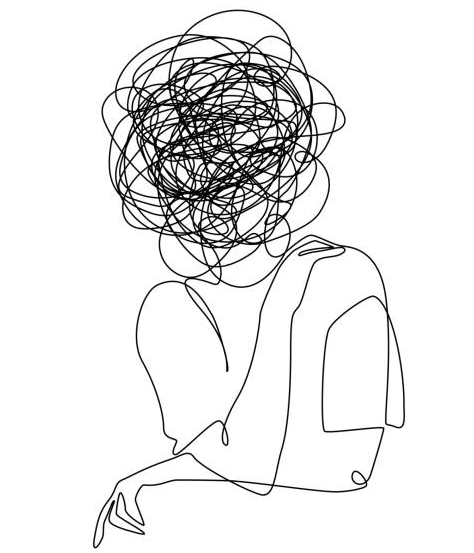Why crying over my keyboard is worth it (I guess) + 3 great books you don't know about

Dorothy Parker had it right when she said:
"I hate writing, I love having written."
Truer words have never been spoken, at least for me.
We've got some new folks here, so a quick reintroduction is in order: I'm Charlotte Chambers, mom, lawyer, fiction addict, reader who sets outlandish reading goals (95 this year, 90 last year) and meets them. I read widely, and I'm always looking out for books that aren't going 'viral' on Instagram or TikTok. If you are also kind of sick of seeing the same 20 books over and over, check out various of my other newsletters for unique bookish inspiration:
-When books become corn + 6 great books with no kissing
-Why seeking books by diverse authors is crucial + 6 bangers written by Black authors
-Free societies read freely + 5 bad-a$$ banned books
Back to the writing grind: for a very long time I've dreamed of writing The Great American Novel, which I think is natural for a reader as insatiable as myself. But I just didn't think I had the chops to do it. It seemed like the gap between what was in my brain and the book I was reading at any given time was so vast it was effectively impassable.
But eventually, the more I read and read, the more . . . equipped, I suppose, I felt to dip my toe.
And as for all things, practice makes perfect. Like many of the world's population, I developed a COVID-19 hobby. Instead of making bread, I took online writing workshops and set the time I used to sit in a car commuting aside for getting words on the page.
The first few attempts were very bad. The next less so. And on and on, until, at last, I'm in the midst of drafting something that is not awful, and dare I say, maybe even kind of OK.
The time that stretched over the above two paragraphs is about 5 years long, and it's been a slog to say the least.

What I find spectacular and strange about writing, and why I'm bothering to talk about it here, is how unbelievably difficult it is.
I'm a lawyer. I've been practicing law for a decade plus a few years. I've spent those years working 60+ hours a week, often 12 hours a day. I've pulled many all-nighters. Even today I'll work from 8 AM to 6 PM without blinking or taking a real break. And it's hard. Being a lawyer is really hard, you're basically doing homework all day, every day.
But creative endeavor is a unique challenge for me. While I have a very big gas tank for work, I find that engaging the creative part of my brain takes up about 10x more gas compared to my job.
And I'm gonna tell you something: lawyering pays better too. A lot better.
If I ever did publish this book I'm writing (in a traditional setting), I'll probably end up making pennies on the dollar for it. Maybe less! The sheer time and skill-building required to complete and publish a debut novel is enormous compared to what I'm already paid to do.
So why? WHY?!

I don't even know. I can't tell you why, but I just love it.
Nothing I'm saying here is especially original. It's not like I'm the first person to realize that creative work is both deeply satisfying and incredibly frustrating. But the funny part about it, as I near my 40th year, is how long it took me to realize that I would actually want to do something just for the sake of it, and not because I would receive material reward.
So ART is wonderful for its own sake? Weird. I guess there are some side bennies too, according to neuroscientists who know better. Engaging in creative projects puts a person in a more optimistic frame of mind, floods the reward center of the brain, lowers cortisol levels, and allows for a deep, present focus (bye-bye rumination, kind of like when you watch Midsommar, I guess). I can certainly attest to all these things being true.
Anyway, this is going to be a short one today (hurray, I know!) so here are three books that I absolutely adore that make me want to write, and perhaps more important, to keep going. I also never see these novels on the socials as far as I can tell, so here I fulfill one of my promises. (Note: I would put 'Haunting of Hill House' by Shirley Jackson here too, but I reviewed it last week).
Head's up, I'm going to gush a lot. These are three of my favorite books of all time.
Book Reviews!
'Fig' by Sarah Elizabeth Schantz
Genre: Literary, YA
Rating: 5/5
Super Short Synopsis: We start with our main character, Fig, when she is six-years-old and grow with her until turns nineteen. We watch a young Fig navigate life with her schizophrenic mother, and make many attempts to 'save her'. This takes a toll on Fig, who is genetically predisposed to suffer from the same condition.
Review: Please read this and let me know if you've ever read a more beautifully-written book. I'll be surprised if you manage to move me from this position. But the thing about Schantz's prose is that it's imminently accessible. Reading her words feels like drinking a long, much-needed glass of water. It's as easy as breathing.
Some of the digs on this book I seriously just can't with. Like, "everything about this novel is perfect, I just didn't like it." Wha? I think that's because we basically live and develop alongside Fig, her mother, and their respective mental illnesses. It's a very acute look at how this condition unravels the lives of people and slowly. Is this one a heart-wrencher? Yeah. But it's also not ham-fisted or heart-rending just for the sake of twisting up the audience. Every word, beat, sentence, every period even has a very clear, authentic purpose.
I've heard an interview with this author who said she wrote Fig to show that people are more than their mental illnesses. Well, she 100% achieved that goal and delivers it in a package so neatly-wrapped there isn't a single corner that's out of place, a line that could have been folded better.
Basically: if you want to see how a perfect set of sentences gets strung together and fall in love with the sweetest girl along the way, pick up Fig.
'The Heart's Invisible Furies' by John Boyne
Genre: Literary, Historical
Rating: 5/5
Super Short Synopsis: Starting at seven-years-old, we follow our MMC through seven year chunks of his life in Ireland. I can't tell you more, it's all spoiler. It's amazing.
Review: There are few books I've read that left me crying day-after-day-after-day. The tears were bittersweet, and so, so worth it. First of all, I kind of have a crush on Ireland. So the setting for me absolutely rocked. Kind of a lame American thing to be "into" just cuz, but it is what it is.
Our main character, Cyril, lives his life in a time when a person really had to fit into a specific type of box in order to be treated as human by society. We see Cyril change, and even society along with it. Some call this novel a political one, and while that may be an element, calling it that really betrays an inability to grasp the depths to which this book can take a person.
It's a human novel. If I met a sentient alien robot, and they said "Char-LOT wut DOES IT MEeN to be HOO-MAN" I would say, "read this book please, and then you'll get it." Even though the details of Cyril's experience may not be the same for everyone, the emotional heart of this book lives in every person's chest.
'The Book of Joan' by Lidia Yuknavitch
Genre: Literary, Science Fiction
Rating: 5/5
Super Short Synopsis: A woman living in a space colony, which floats right above an inhabitable Earth, searches for signs of a mythical figure named Joan. The people living above Earth have become mostly genderless, hairless, and display few distinguishing features other than the skin grafts and tattoos they give themselves. What's going on with the creepy government running this sky world, and what's going on down below?
Review: Lidia is one of those Very Important Literary Writers. This isn't a knock, it's just a true fact. She's got a good tranche of work out there, and it's the kind of stuff MFAs drool over. When selecting my First Lidia, I chose Book of Joan because I liked the science fiction aspect, but I really didn't know what to expect.
Well, if you take a master writer and have her write a feminist sci-fi novel that is part space-opera, part body-horror story, you're going to get something pretty righteous it turns out. This story is very plot-driven, the characters are very real on the page, they have fleshed out motives, desires, expectations, dreams. When you meet Joan, well...this has been described as a loose retelling of Joan of Arc and buddy, I can see it.
Thank you once again for spending this time with me and for considering these wonderful works of fiction! Not sure what's coming next week, but I'll be here 😺.
I would love to hear from you! Whether that's in the comment section below, on BlueSky, Instagram, or email. I'm always up for a good gabfest (or respectful argument) about the written word.
Have a great week and read banned books,
Charlotte Chambers
